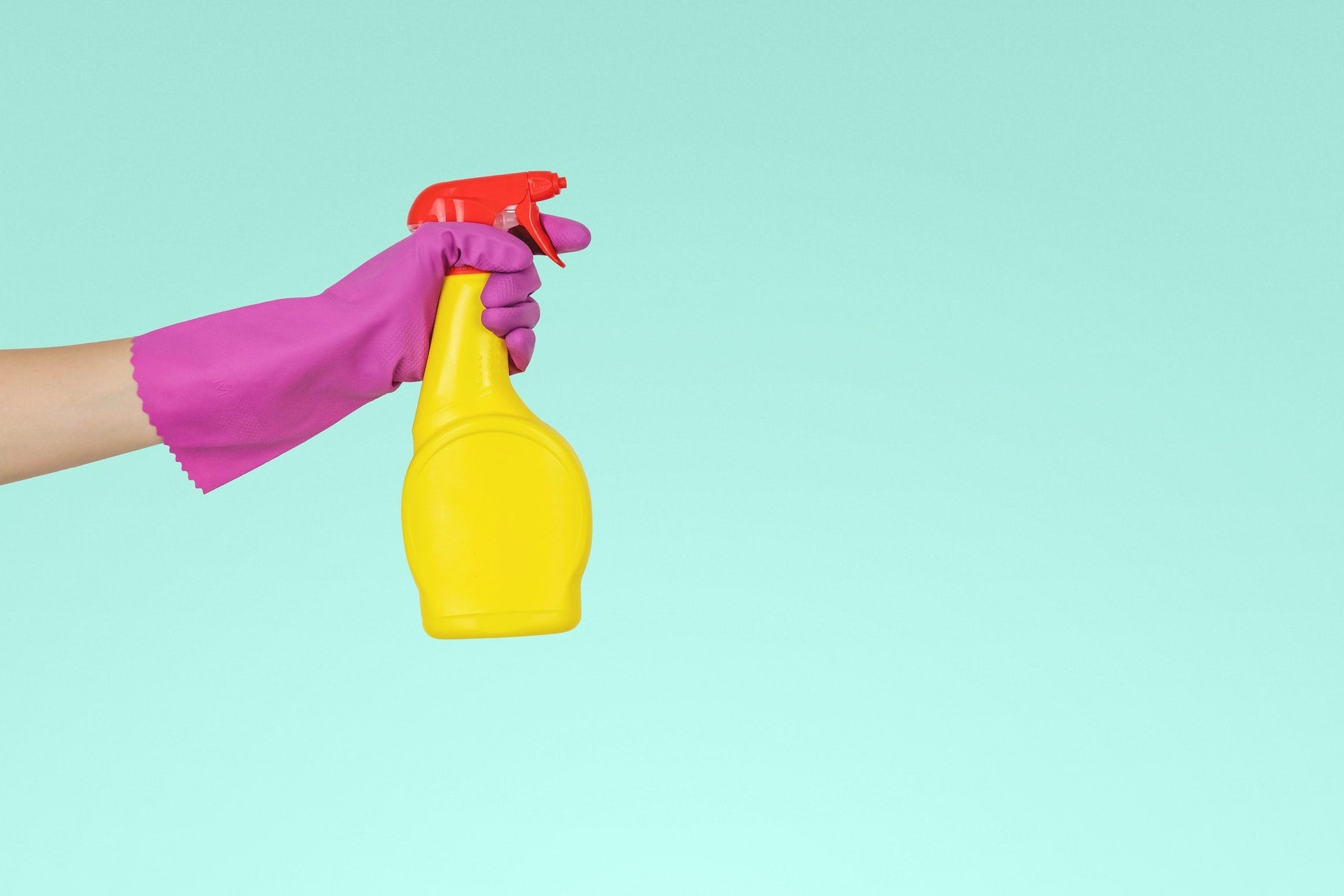Toxins are everywhere.
They’re in the air we breathe, the water we drink, and the food we eat.
They can be found in droves in the products we use to clean our house, and very often make up most of the personal care products we use.
Don’t even get us started on your favorite smart device – it can be loaded with enough bacteria to make you want to dust off your old rotary phone.
Everyday your body faces more toxins than you might realize… and if your toxin levels cross a threshold, it can spell bad news for you and your health.
Luckily, your body comes with a built-in toxin defense system…
And it may surprise you to know that at its core, this dense system is made of mucus.
Mucus: Your Best Bodily Defender
Your mucosal barrier – the thick, gluey layer of mucus lining your intestines – provides the most powerful shield against harmful invaders.
That’s the good news.
The bad news is that an especially devious toxin called lipopolysaccharide – or LPS toxin – knows just how to weaken your most powerful defenses.
And when LPS toxins do manage to compromise your mucosal barrier, they can cause all kinds of problems such as:
- Joint pain
- Extreme fatigue
- Bloating, gas, and abdominal pain
- Brain fog
- Depression
- Obesity
- Trouble fighting off infections
If you’ve been struggling with any of these or other health issues that just won’t go away, you may be dealing with an LPS toxin overload.
Supporting and fortifying your mucosa is critical for stopping those LPS toxins before they can do even more harm.
In fact, your path to wellness depends on a healthy and strong mucosal barrier. You simply can’t heal or feel your best without it!

Fighting Toxins Depends on Mucus
You may only think about mucus when you’re blowing your nose, but your body’s mucosa plays a critically important role in your immune system.
Mucus protects you by shielding your body from the many dangers of the outside world. It sets up a blockade called your mucosal barrier… the main obstacle pathogens and toxins face.
And the intestinal mucosal barrier – the layer of mucus that protects the lining of your gut – acts as your first line protector against harmful substances.
It’s the strength (or lack thereof) of your intestinal mucosa that determines how well your body deals with antigens (substances like germs and toxins that provoke immune responses).
Your intestinal mucosa is also responsible for dealing directly with LPS toxins… but sometimes it’s fighting a losing battle.
LPS Toxins Storm the Mucosal Barrier
When your gut gets overloaded with LPS toxins, it takes a toll on your mucosal barrier. LPS toxins attack the barrier, thinning the mucus and weakening the intestinal lining. That gives them the opportunity to create holes in the barrier, allowing them to escape.
When LPS toxins make it into your bloodstream, your immune system recognizes them as “bad guys” and mounts a defense. That triggers the release of inflammatory compounds called cytokines, which include some disease-causing heavy hitters such as:
- Tumor necrosis factor-alpha (TNF-α)
- Interleukin-6 (IL-6)
- Interleukin-8 (IL-8)
- Interleukin-1-beta (IL-1β)
Any one of those compounds can create a devastating cycle of inflammation and damage…
Research shows that TNF-α causes intestinal inflammation, which weakens the gut barrier. That makes it even easier for LPS toxins to slip out of the gut and into your bloodstream.
And so begins a vicious cycle – More LPS toxins make their way into your blood, triggering even more inflammatory cytokines… which cause more inflammation and weakens your immunity…
It’s a near unbreakable cycle UNLESS you step in and give your gut the support it needs.

Your Gut Microbiome Can Make Things Better… Or Worse
Your gut microbiome contains trillions of bacteria. Some of those – probiotics – promote good health, while others – pathogens – cause harm.
LPS toxins are born inside your body as part of the outer cell membrane of harmful bacteria. And when those bacteria die, their LPS toxins get released into your gut.
Normally, the combination of your intestinal mucosa and your immune system can quickly handle LPS toxins.
But when your gut microbiome contains more pathogens than probiotics (a state called dysbiosis), LPS toxins can overwhelm the mucosal barrier. And once the mucosal barrier is overpowered, those LPS toxins escape into your bloodstream.
That’s why it’s so important to keep your gut microbiome in healthy balance, where beneficial bacteria outnumber pathogens.
When you support your gut microbiome with spore probiotics, they increase production of important compounds called short chain fatty acids (SCFAs) such as butyrate. SCFAs regulate the production of compounds like TNF-α inside your intestines (keeping the baddies at bay.)
On top of that, spore probiotics quickly reduce pathogen populations. That, in turn, lowers the LPS toxin load.
With fewer LPS toxins to deal with, your intestinal mucosa can begin to restore itself. Then it can rebuild the barrier that locks LPS toxins safely inside, where they can’t make you sick.
How A Healthy Mucosal Barrier Traps Harmful Toxins
When your intestinal mucosa is thick and healthy, it effectively prevents LPS toxins and other harmful compounds from busting out.
But to stay strong, especially if it’s already under attack, your gut barrier needs specific support.
First, the intestinal mucosa needs plenty of MUC2, a protective protein that makes mucus thick and gel-like. Without enough MUC2, the mucosal barrier won’t be strong enough to block LPS toxins.
Second, when you’re under attack, your gut needs bodily backup to neutralize toxins and other harmful compounds that try to break down the mucosal barrier.
Third, it needs strong antioxidant protection against free radicals that can damage the integrity of your mucosa.
How to Fortify Your Intestinal Mucosa
A thick, gluey mucosal layer offers your body its best defense against LPS toxins and pathogens. To keep that defensive shield in top shape, you need to give it the right support.
To boost MUC2 production: It takes four key amino acids to build enough MUC2 to keep your intestinal mucosa in great shape:
- L-proline
- L-serine
- L-cysteine
- L-threonine
To increase barrier protection: Powerful botanical compounds called citrus polyphenols help increase healthy diversity in your gut microbiome. That helps increase production of those protective SCFAs - especially butyrate - that are known to bolster barrier strength and integrity as well as help manage TNF-α.
By boosting SCFAs, citrus polyphenols help support healthy gut barrier function. And that’s another win for your intestinal mucosa.
To provide antioxidant protection: A targeted blend of concentrated whole-food antioxidants offers superior protection against free radical damage to your intestinal mucosa. This combination of extracts from six proven powerhouses - including olives, bilberries, and green tea - deliver focused antioxidant action to your gut barrier.
At the same time, this mix of polyphenols reinforces the abundance of key probiotic bacteria in the gut. Through these healing actions, the polyphenol blend maintains balance in the gut microbiome, balances the inflammatory response, and keeps your intestinal mucosa strong and healthy.
Gut 4-tify Supports Your Intestinal Mucosa
Healthy intestinal mucosa plays a key role in your health and wellness. Gut 4-tify provides robust support to help maintain a thick mucosal barrier.
Gut 4-tify is loaded with:
- A concentrated blend of whole-food antioxidants
- 4 key amino acids: L-proline, L-serine, L-cysteine, L-threonine
- Citrus polyphenols









